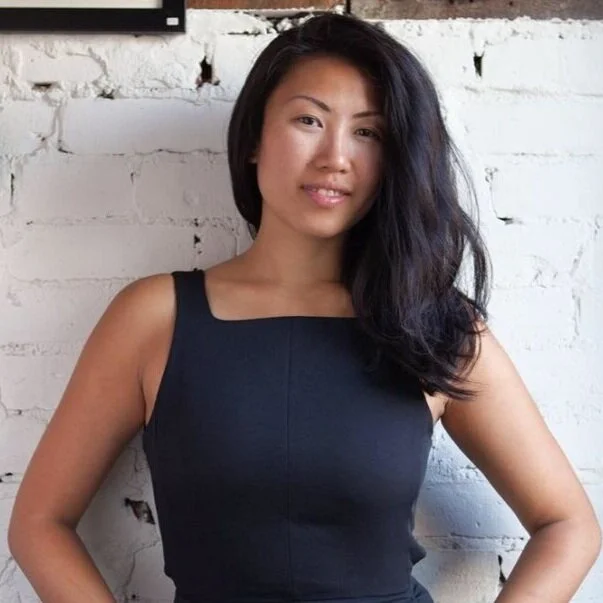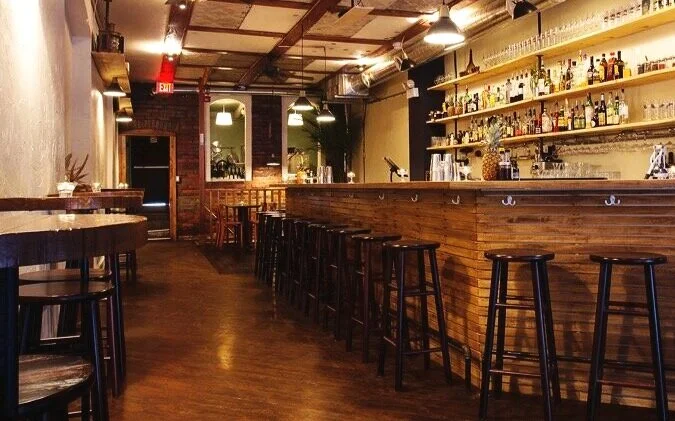Creative bartending, personal choice and the potential for a big payday: The ups and downs of inclusive hospitality
/(Helena Lopes/Pexels)
Martha Beach-Yeo co-owns a restaurant and brewery with her partner in Winnipeg. She’s one of the sous chefs there. She’s also sober.
“When the pandemic hit us was when I stopped drinking,” Beach-Yeo says. She and her husband, working in the hospitality world as they do, love to travel and visit various restaurants. “I’m quite happy to not drink alcohol anymore, but there’s still that ritual and enjoyment that go along with food that I was missing without having some alternatives.”
The ritual that Beach-Yeo is talking about is one that cannot be easily fulfilled with a glass of soda or water, it’s one that requires the heft and social currency that alcoholic beverages usually carry. As a non-drinker in public hospitality spaces, Beach-Yeo says it’s been difficult for her to find many bartenders who are able to accommodate her requests.
“I remember one restaurant I was at, they sort of gave me a funny look and said, ‘Well, we have soda water, but you would have to pay for that,’” she says. “I'm happy to pay just as much for a non-alcoholic cocktail as I would for an alcoholic cocktail. I still want something tasty.”
(Mister Mister/Pexels)
The idea Beach-Yeo wants to drive home is that when her husband is drinking a cocktail or beer with dinner, she deserves to be able to join him in this cultural ritual, with a drink that is inclusive of her own preferences. She wants a meaningful experience that is respectful of her needs regardless of where she goes. The tide is turning for women like Beach-Yeo as there is starting to be some momentum within the hospitality world, spurred in equal parts by consumer demand and trailblazing bartenders, that will result in more inclusive menus.
***
Evelyn Chick is a globally-acclaimed bartender and sommelier, and founder of Evelyn Chick Projects Inc., one of whose services is subscription drink boxes. She also does advocacy for inclusive drink serves. According to her, a restaurant might be hesitant to provide inclusive drink options for the logistical but boring reason that it’s more expensive to provide these alternatives and to train staff to handle non-alcoholic and alcohol-free options.
“[For example,] creating a non-alcoholic subscription box every month is actually taking most of my energy,” Chick says. “And I have eight or nine other kits that sell really, really well. And this subscription service is the one that takes the most of my time and the most of my imagination and the most of my creativity. So I feel like a lot of people most likely may not want to put in that work.”
Chick adds that training a bartender to create non-alcoholic or alcohol-free (AF) drinks doesn’t look too different from training required to create any other cocktail, but it does require more inventiveness and energy, and the understanding that a non-alcoholic cocktail exists in its own right.
“When you take away the alcohol, you take away texture,” Chick says. “You take away different flavours that will come from something like a juice or citrus. So [creating AF cocktails is] more about thinking a little bit outside of the box and thinking about what makes a balanced drink without the alcohol, because we're so used to doing that.”
Creating an AF drink isn’t just about removing the alcohol from a cocktail, in other words, because flavours still need to complement each other, so that the ritual of holding a hefty drink on par with your peers at the dinner table can be carried through; the drink still needs to be good and has to satisfy any palate no matter its degree of sophistication.
“[A non-alcoholic drink is] also its own entity because you're not simply removing that [alcoholic] aspect to create a drink,” Chick says. “You're creating something that's brand new with your flavours.”
The paradox of restaurants being non-inclusive to non-drinkers for reasons of cost is that they will miss out on a lot more customers, ultimately missing out on business from a growing swath of the population.
“The drink still needs to be good and has to satisfy any palate no matter its degree of sophistication.”
According to Statistics Canada, more than one in five Canadians have decreased their consumption of alcohol since the start of the pandemic, and Chick says sober-curiosity will only continue to grow as the non-alcoholic and AF industry continues to innovate and challenge its consumers’ palates.
“I think the non-alcoholic realm has grown so much in the last eight years that it would be silly not to take advantage of it,” Chick says. “If you have a menu with just pop or lemonade or your typical coffee and tea, and then you have a really beautifully-put-together cocktail list — you're really limiting your consumer.”
Jonny Stevens is founder and developer of the Better Without app, the world’s first catalogue capable of telling you where non-alcoholic and AF drinks are located around you.
“I spoke to a marketing director of a UK restaurant company recently,” Stevens tells me. “And he's like, ‘[Alcohol-free] is such a small part of our sales.’ Then I said, ‘But all your sites are places where people have to drive to.’ The people who are driving are usually the person choosing. So if they know that they've got good [AF] options, you're going to attract more people. And actually, even if one person on that table isn't drinking, you can attribute that whole table to alcohol free.”
In other words, if your menu lacks a delicious, holistic AF and non-alcoholic section, then you will lose out on more customers than you expected in a single night.
***
Civil Liberties is a bar located just west of Toronto’s Koreatown. The bar is known for not having a cocktail menu, running on the principle that without rules, anything may be permitted. The establishment is founded on the principle that no two guests are alike, and no two bartenders are alike.
“It gives us chances to experience new things,” general manager Aeron Holizki tells me. “Every time someone comes in, even if they ask for the same cocktail, just because the bartenders are different and everybody kind of has their own way of doing something, [the drink will be different].”
Photo Credit: Civil Liberties, 2021.
Two customers each wanting a Manhattan can come into Civil Liberties, but they each will have a different experience with their drink if they get them made by two different bartenders.
It’s this inclusively anarchic sentiment that has earned Civil Liberties a reputation as one of the best bars for non-drinkers in the city.
“We've actually been getting more and more alcohol free people [coming in] of all walks of life, and normally we really hit it out of the park,” Holizki says.
Holizki says she’s noticed among Civil Liberties customers that the inclination for AF has increased. “It’s becoming a bigger movement,” she says. This is why she says it doesn’t seem sound for establishments to be excluding this section from their menus.
“People should definitely not be made to feel excluded if they don't choose to drink, and they should still get something that looks and feels kind of like indulgence,” she says. “Just because they're not choosing to drink doesn't mean that they should be excluded from the experience.”
***
Beach-Yeo says that though her restaurant doesn’t have as extensive an AF menu as she would like, she still works with her staff to provide a good experience to people who come in and are not drinking for whatever reason.
“People should definitely not be made to feel excluded if they don’t choose to drink, and they should still get something that looks and feels kind of like indulgence.”
“Whenever [we] have somebody who's pregnant or not drinking for whatever reason come in, [the servers] usually come and check with me and say, ‘What can we offer them?’” she says.
Beach-Yeo is pregnant, and has noticed a lot of pregnant people coming into her restaurant, especially since the pandemic — there have been many “pandemic babies,” she says. Many restaurateurs wouldn’t take much notice of these women and their condition other than in assuming right off the bat that they want nothing other than water or soda. And while pregnant women certainly can’t drink alcohol, Beach-Yeo says that this is a group that doesn’t deserve to be overlooked. These women still deserve to participate in the ritual that she herself craves with her husband. Especially since being locked down and deprived of social connection.
“We've all been locked down for a long time and we still want to go out and have a nice night out,” she says. “[Nobody wants] to just be drinking water, you want something interesting.”






